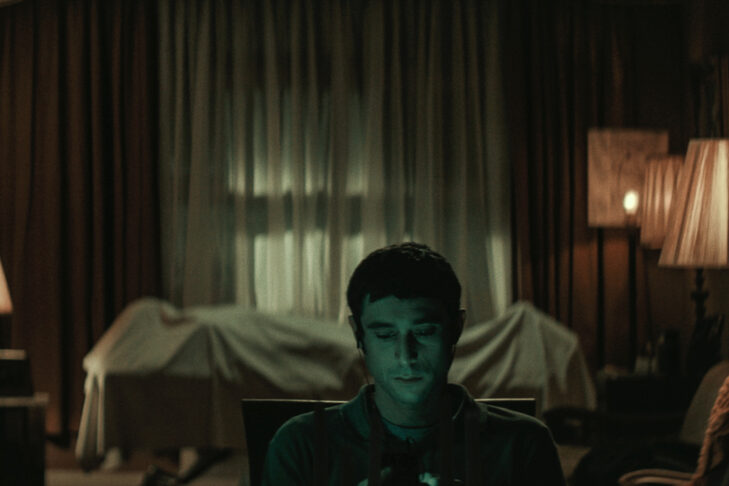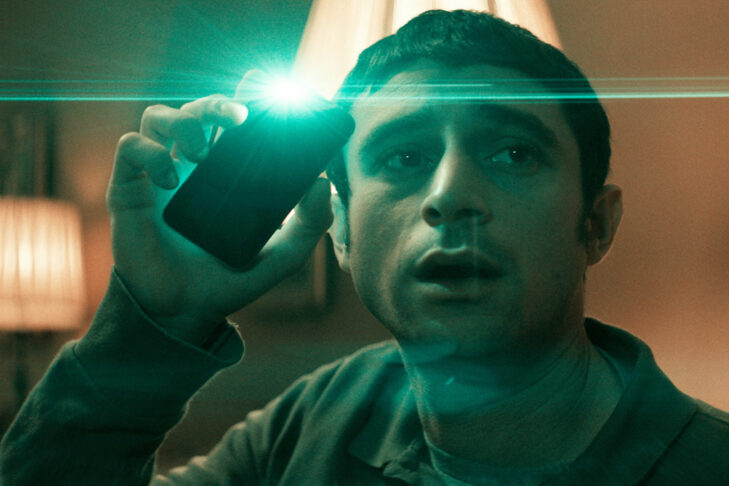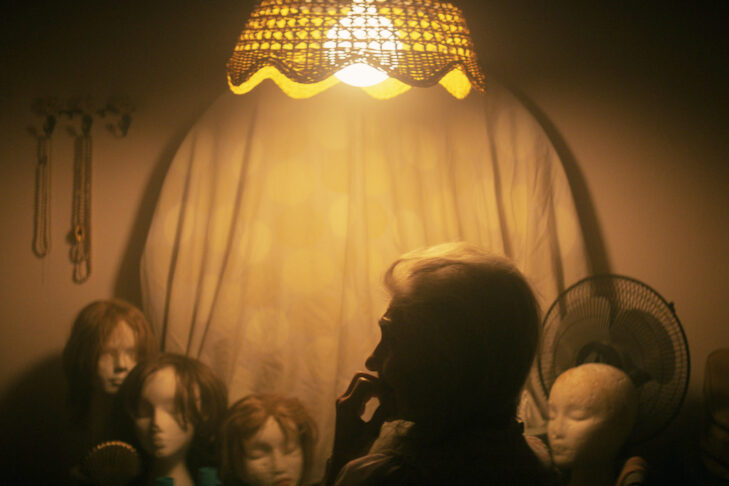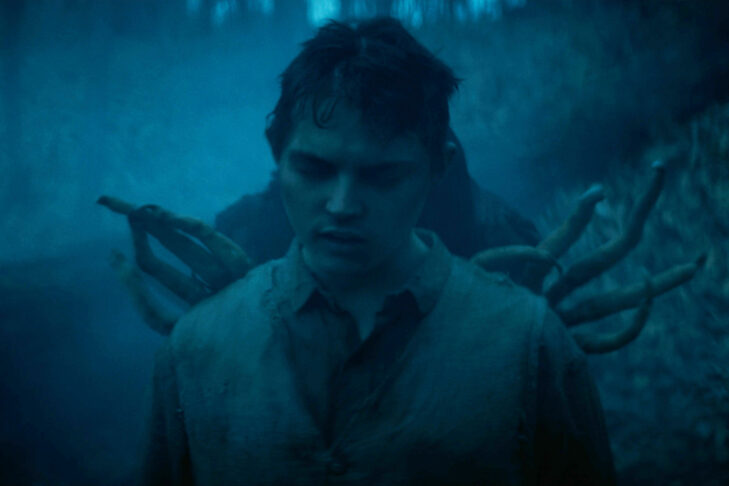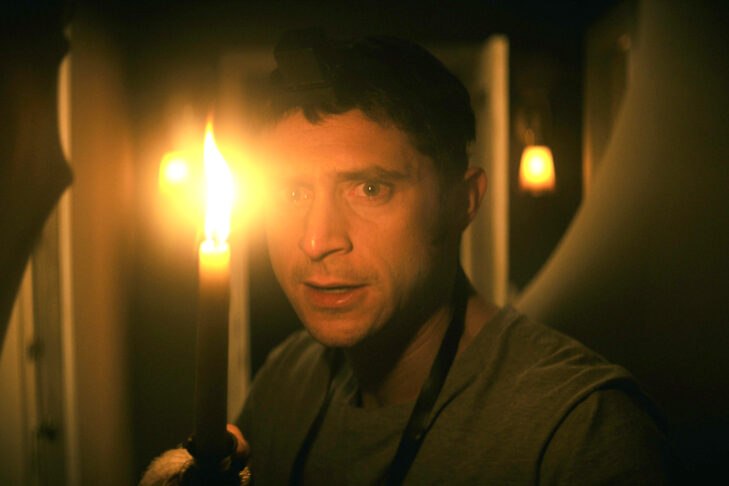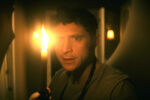It may be tempting to describe “The Vigil” as “The Exorcist” meets Borough Park. But making the comparison can be glib and detract from the originality of this one-of-a-kind Jewish horror film. Tickets for the film, screening through Feb. 22, are available from Boston Jewish Film.
Jewish themes do not usually drive horror films. But “The Vigil” has blazed a trail for the way it introduces Yiddish dialogue and combines supernatural elements with Jewish mourning rituals. There are plenty of jumpy scares, along with flickering lights and unsettling appearances. All of it happens in a setting where things literally go bump in the night.
Related
The shomer for this particular night is Yakov, played to perfection by Dave Davis. A scene at the beginning of the film shows Yakov in a support group for those who have also stepped off the derech—off the path of ultra-Orthodox Judaism. Yakov, emotionally fragile, desperately needs rent money and accepts his cousin Menashe’s offer to watch over the body of Mr. Litvak, a Holocaust survivor. Menashe is played by the excellent Menashe Lustig, a practicing Hasid, who was the subject of the lightly fictionalized 2017 film “Menashe.”
Suffice it to say that Yakov is in for a frightful night where he has to contend with the disturbing Mrs. Litvak, played by the late Lynn Cohen, an exceptional actor who had a recurring role as Magda in “Sex and the City” and played Golda Meir in “Munich.” Giant lamps eerily illuminate the Litvaks’ cramped living room with its yellowing wallpaper and shabby furniture, and Yakov is left with a dead body that eventually reacts to the dybbuk, or demon, that haunted it in life.
Davis, along with producer Raphael Margules, met with JewishBoston over Zoom to chat about the film. They discussed everything from speaking Yiddish in the film, understanding Yakov in light of his mental health struggles, considering the horror genre in combination with Judaism’s more esoteric mourning rituals and the intergenerational trauma associated with the Holocaust.
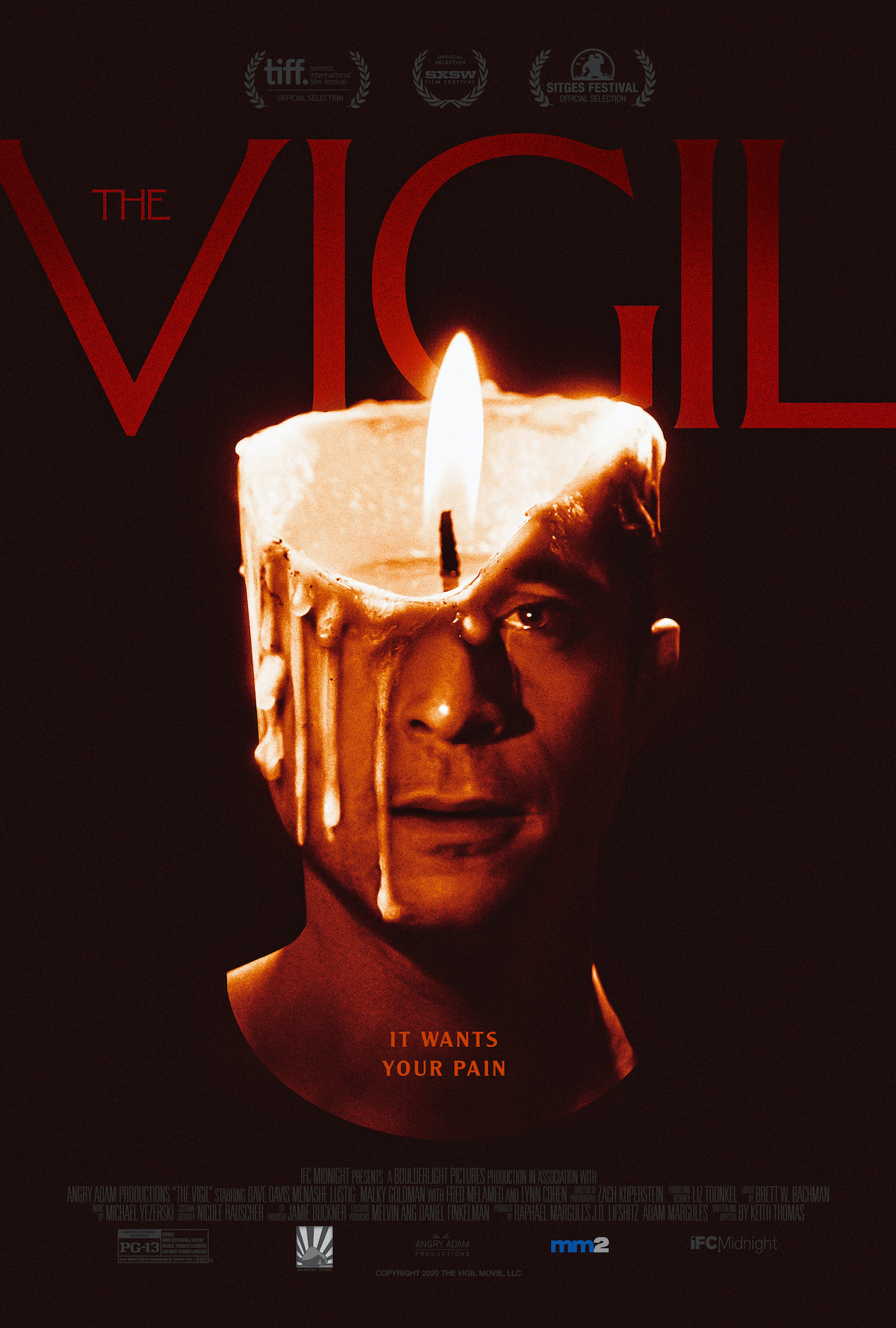
Davis said that learning Yiddish to play Yakov was a revelation. Brought up as a Reform Jew, he said: “I didn’t realize how much Yiddish I knew until I started studying it for the film. The more I learned about the Hasidic community, the more I realized I could have been part of that community if my grandparents hadn’t decided to take a different path toward Americanization.”
In his research for the role, Davis also met with people at various stages of leaving the ultra-Orthodox community. “I came to appreciate their struggles,” he said. “For many, leaving meant it was their first interaction with English, secular life, American films and music, and popular culture in general. I kept in mind how those interactions could inform Yakov’s character. The film also addresses antisemitism. To bring those experiences to life as an American Jew was another way for me to bring that community to life.”
Margules, an Orthodox Jew, runs BoulderLight Pictures with a friend he met in Hebrew school. Margules said he was determined to bring his sensibilities as an observant Jew to the film’s aesthetic. “The intention was to tell a very scary, intimate personal story within the Hasidic community and to portray that community in very human ways,” he said. “We brought the audience into this community organically with someone who has left that world and was pulled back literally and figuratively to face the issues he left.”
To that end, Yakov spends the first part of his vigil reading psalms in Hebrew. The gesture not only reflects Yakov’s fragile state of mind but the fact that he suffers from a form of PTSD after witnessing antisemitic thugs murder his younger brother. “It was important that the fear in the film be grounded in the reality of the emotion,” Davis noted. “Being afraid of the boogeyman or the monster under the bed comes from the internal demons we all struggle with, whether it be mental health, familial issues or community trauma. Yakov’s challenges come from all three of those things.”
While death is a natural subject for a horror film, Margules and Thomas took things a step further by focusing on the trauma of the Holocaust for survivors and second-generation survivors. Margules’s four grandparents were imprisoned in concentration camps, and he said their experiences “are intertwined in my DNA. When I got Keith’s script in 2018, my grandmother in Borough Park had recently died at age 90. The movie is a tribute to her and that generation. I recognize that it’s an ambitious move to tackle the Holocaust when making a low-budget horror movie. We had to handle it delicately and organically.”
The horror, coupled with the trauma of the Holocaust, comes together in the demon of the Mazzik. The dybbuk latched on to Mr. Litvak in Buchenwald and never let go, even in death. At one point, Yakov confronts the Mazzik and sees a distortion of his face projected onto the demon. Davis considers that scene a turning point in Yakov’s convoluted relationship to faith. “How does Yakov grapple with his Hasidic roots?” he asks. “Does distancing himself mean he doesn’t believe in God? In a supernatural story like ‘The Vigil,’ the implications are that there are profound things to deal with, like Jewish suffering through the generations and personal spiritual journeys.”
Join a live conversation with writer/director Keith Thomas, producer Raphael Margules and actors Dave Davis and Malky Goldman on Feb. 22 at 7 p.m. Admission is included in the price of a screening ticket.


